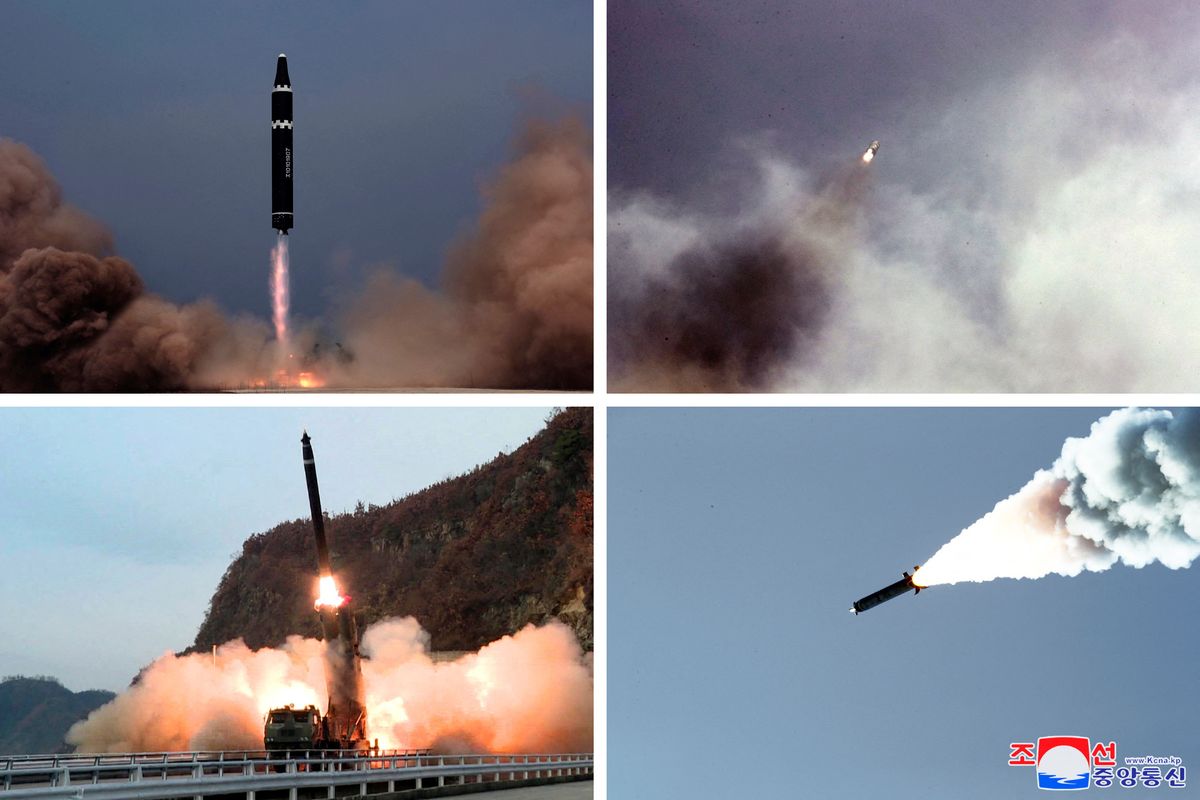North Korea confirms it simulated attacks on South Korea and the US in response to joint military drill
On Monday, North Korea confirmed that these recent missile launches were simulated strikes on South Korea and the US.

A few minutes every morning is all you need.
Stay up to date on the world's Headlines and Human Stories. It's fun, it's factual, it's fluff-free.
Last week, South Korea and the US were working on a military exercise called "Vigilant Storm," an aviation drill for their combined warplane arsenal. But North Korea warned that it would respond militarily if they kept up with the exercises, which it perceived as threatening. Last Wednesday, North Korea fired more than 20 missiles – the most in a single day – in response to the ongoing drill. The next day, North Korea fired at least six missiles into the ocean and then launched three more short-range missiles off its coast. The exercise was scheduled to end on Friday, but the US and South Korea extended it through Saturday as North Korea continued to fire off weapons.
On Monday, North Korea confirmed that these recent missile launches were simulated strikes on South Korea and the US. It said it had been running attack drills for air bases, aircraft and a major South Korean city in response to the two countries running a "dangerous war drill." This is after firing four ballistic missiles into the sea on Saturday as US supersonic bombers flew over the country. Meanwhile, South Korea said it had recovered parts of a North Korean missile off its coast.
Key comments:
"The recent corresponding military operations by the Korean People's Army are a clear answer of [North Korea] that the more persistently the enemies' provocative military moves continue, the more thoroughly and mercilessly the KPA will counter them," the General Staff of North Korea's military said in a statement on state media.
"Any nuclear attack against the United States or its allies and partners, including the use of non-strategic nuclear weapons, is unacceptable and will result in the end of the Kim regime," said US Defense Secretary Lloyd Austin and South Korean Defense Minister Lee Jong-Sup in a joint statement on Thursday.
"Our strategy for North Korea recognises the threat posed by its nuclear, chemical, missile and conventional capabilities, and in particular the need to make clear to the Kim regime the dire consequences should it use nuclear weapons … there is no scenario in which the Kim regime could employ nuclear weapons and survive," said the US National Defense strategy document released last week.




Comments ()